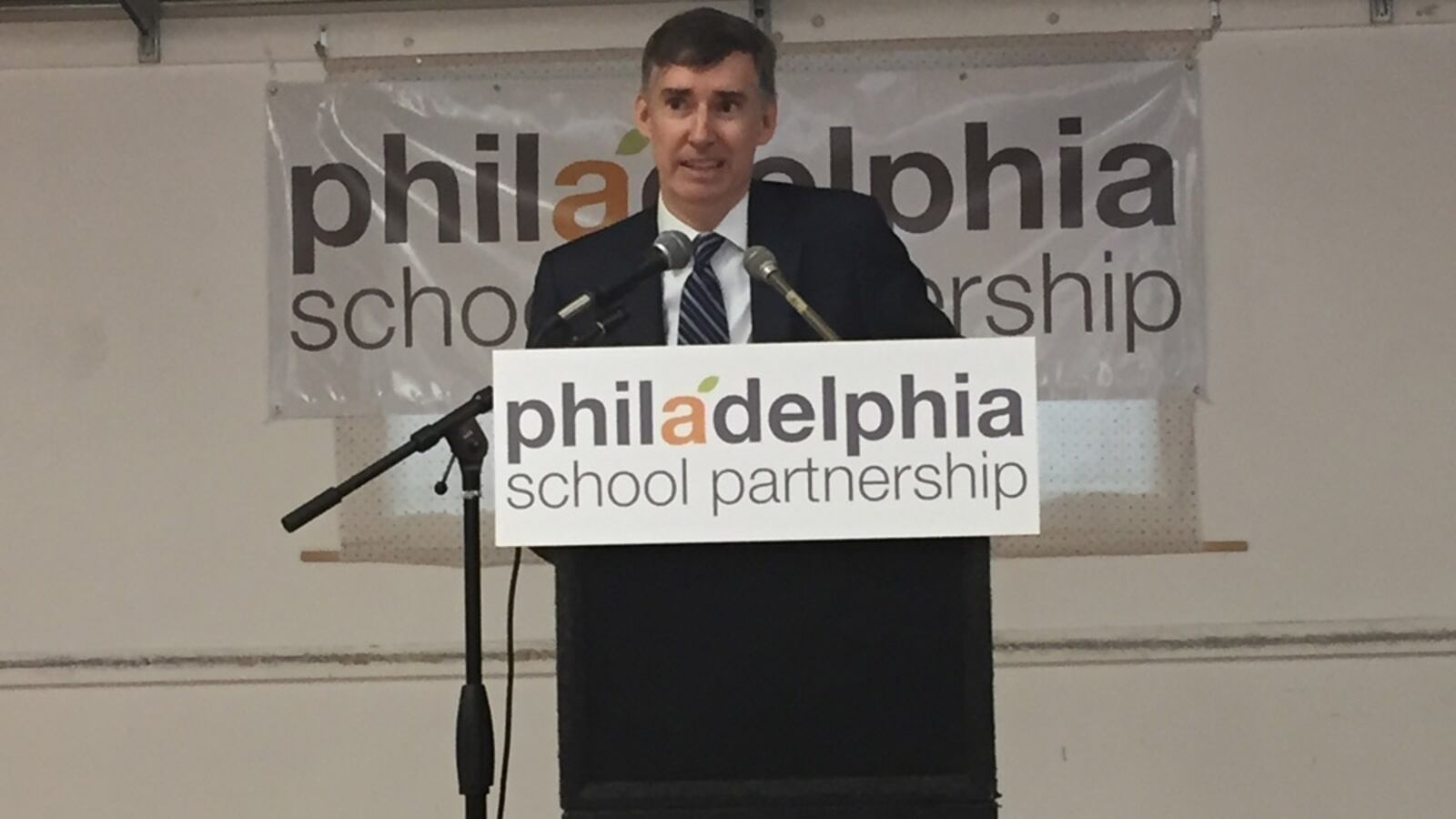This article was originally published in The Notebook. In August 2020, The Notebook became Chalkbeat Philadelphia.
One of the most influential education organizations in Philadelphia has announced plans to raise and distribute $60 million over the next three years.
Since its founding in 2011, the Philadelphia School Partnership has doled out $80 million — $58 million in the form of direct contributions to schools.
With this latest round of fundraising, PSP says it will create 15,000 more "high-quality" seats across the city. The organization, which said it has already raised $15 million, announced Thursday that it would give $2.5 million from that initial bounty to five schools:
- Vaux Big Picture High School ($835,000 to get the new public high school off the ground).
- Russell Byers Charter School ($650,000 to expand the Center City charter).
- Folk Arts Cultural Treasures Charter School ($300,000 to grow its Chinatown campus).
- KIPP Philadelphia Charter Schools ($690,000 to help the charter network manage growth as it opens five new schools).
- Science Leadership Academy at Beeber ($75,000 to help the public high school incorporate middle grades).
The types of schools on the list are consistent with PSP’s track record. In its first round of giving, 62 percent of its school-based grant money went to charter schools. Public schools received 28 percent of the funds, and the remaining 10 percent went to Catholic schools.
A lobbying group tied to PSP, Philadelphia School Advocacy Partners, has also been a leading champion of school choice and laws favorable to charter expansion.
But PSP works across all sectors, and its reach was evident Thursday. Superintendent William Hite and Mayor Kenney both attended the announcement.
"This announcement represents another positive step forward as we continue to improve schools and create great schools close to where children live," Hite said.
Kenney called PSP’s partnership with the School District "integral to creating transformational change in our schools."
PSP’s three new areas of focus
Critics say PSP prioritizes charter schools over traditional public schools, working to weaken the public system through its advocacy and giving.
Few, though, doubt the organization’s influence. So regardless of one’s ideological orientation, it’s worth paying attention to the priorities that PSP laid out in the announcement.
PSP’s main focus continues to be promoting and expanding what it considers to be high-quality schools. But within that larger mission, PSP has three new areas of emphasis.
For one, PSP wants to spend more money on career and technical education, as opposed to an exclusive focus on college prep. PSP’s executive director, Mark Gleason, said the organization heard from students and schools that the myopic focus on college left too many students behind.
"And so there might be a pathway that’s more productive for them and not as expensive," Gleason said.
PSP also wants to focus more on improving teacher development programs and helping school networks better manage growth. Gleason said that many of the charters and public schools his organization supports experience "growing pains" after expanding.
"It’s not as easy to be great when you have twice as many students as you had," Gleason said.
So far, PSP has given money to 50 schools around the city.
Donors to the organization include a mix of national foundations, local foundations, businesses, and individuals. On its website, PSP highlights some of its most prominent givers, a small number of whom choose to remain anonymous.
The foundations who have backed PSP include the Bill & Melinda Gates Foundation, the Walton Family Foundation, and the Michael & Susan Dell Foundation.
Among individual donors, some of the most well-known names are options trader Jeff Yass, Comcast co-founder Julian Brodsky, and investor Mike O’Neill.

